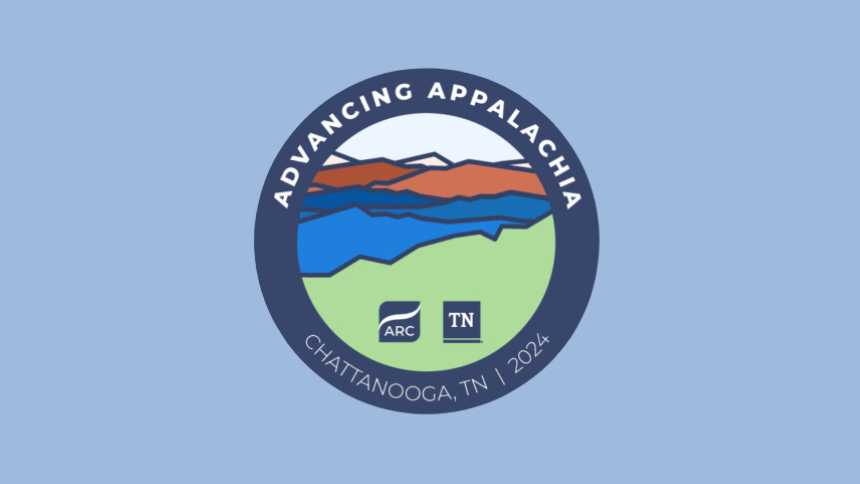
Appalachian Community Capital has $500 million for the Green Bank for Rural America program
The funding comes from the Environmental Protection Agency as part of the Greenhouse Gas Reduction Fund.
The theme of last week’s Appalachian Regional Commission’s (ARC) annual conference was “Advancing Appalachia,” and we sat in on several of the panels that were offered throughout the day. Two of them are worth noting for very different reasons, yet regardless of the sessions we attended, there was a common theme: collaborating through local and regional partnerships.
Leveraging new energy investments.
One of the last panels on Thursday was also one of the most interesting to us. It featured three individuals – two associated with a new $500 million initiative known as the Green Bank for Rural America. Awarded by the Environmental Protection Agency to Appalachian Community Capital (ACC), the Green Bank will leverage private capital to finance an estimated $1.6 billion into 2,000 new energy projects, creating 13,000 good jobs and reducing up to 850,000 tons of harmful pollution annually.
More important for the 13-state ARC region, the Green Bank will prioritize investments in counties in Appalachia, as well as rural energy communities across the nation, rural communities of color, and Native communities, while also offering financing and technical assistance to all eligible rural areas nationwide. This comprehensive approach ensures that the benefits of the new energy economy are accessible to all, fostering a just and equitable transition. These activities will be expanded in the future to include other rural communities around the country.
In a recent news release, Clint Gwin, ACC Board Chair and President and Chief Executive Officer (CEO) of Pathway Lending headquartered in Nashville, said, “This will be a gamechanger for historically under-invested communities and the community development finance field that supports underserved areas.”
Donna Gambrell, ACC President and CEO, was one of the panelists and said ACC “is very close to doing an official launch.” That will occur October 28, and the organization hopes to have the first awards announced in January 2025.
Most of the awards will be in the $1 to $10 million range and address one of four areas:
- Built environment to include both new construction and redoes;
- Distributed energy;
- Transportation like the purchase of electric buses; and
- Business financing.
ACC is a community development financial institution (CDFI) lending intermediary that raises capital for its members to fund small businesses in rural communities in Appalachia. ACC has more than 35 members that collectively manage over $2 billion in assets supporting economic development.
The $500 million award to ACC is part of the Greenhouse Gas Reduction Fund, a $27 billion initiative under the “Inflation Reduction Act” designed to promote a cleaner environment, improve economic competitiveness, and promote energy independence.
Ahead of Gambrell’s presentation, David Murphy, Vice President of Marketing and Economic Development at Volunteer Energy Cooperative (VEC), described a three-state project to install battery energy storage systems as a back-up to address issues like the Tennessee Valley Authority’s rolling blackouts in December 2022.
VEC, which serves 17 counties from Georgia to Kentucky, has already installed three energy storage devices in Spring City and will add a fourth one. The other participants are North Georgia Electric Membership Cooperative (EMC) and Blue Ridge EMC.
Helping manufacturers implement artificial intelligence.
Officially known as the Georgia Artificial Intelligence (AI) in Manufacturing project, Georgia AIM is focused on working to drive AI adoption to lead the next revolution in U.S. manufacturing across all sectors, geographies, communities, and across underrepresented constituencies. Funded under the U.S. Economic Development Administration’s “Build Back Better” program, the program includes initiatives involving education, workforce development, small business development, and community and economic development.
Other sessions covered a diverse set of topics including panels focused on:
- How Chattanooga State Community College and the Georgia Manufacturing Extension Partnership are thinking creatively to address workforce development in rural Appalachia with programs for high school students and justice-involved individuals.
- Keys to downtown vibrancy.
- Leveraging cultural assets and outdoor recreation.
- “Braiding Funding 101.”
- Partnering to develop projects that funders want to fund.
- The critical role that childcare, or the lack of it, can have on economic growth and stability.
- Building substance use disorder recovery systems.
- A panel that was using data and community to better understand the health of Appalachian citizens and drive change.
Like what you've read?
Forward to a friend!

